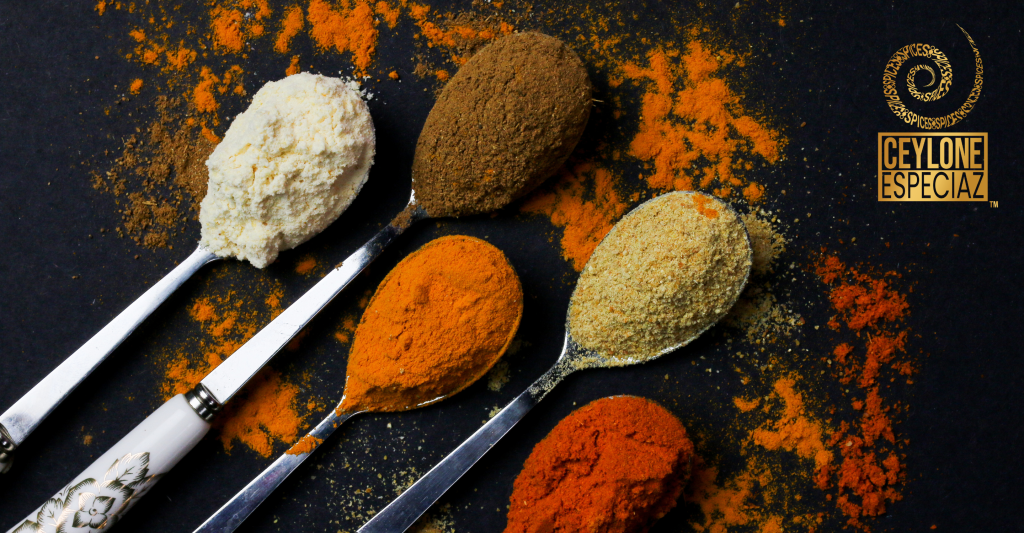
What is the importance of spices?
Share
The dictionary meaning for the term spice is – “a seed, fruit, root, bark, or other plant substance primarily used for flavouring, colouring, or preserving food.” Spices are made from herbs, which are the leaves, flowers, or stems of plants used for flavouring or are used as a garnish. Many spices have valuable properties such as antioxidant, anti-inflammatory, antibacterial, and antiviral etc.

Spices are famous in the Indian subcontinent. At this point, Ceylon Cinnamon is the best in the spice world. Generally, spices are part and parcel of Sri Lankan culture and cuisine. Irrespective of culinary use, spices also have an important place in the field of Western & indegenious medicine. They are known to have several properties which are beneficial for mankind. Humans initially used herbs and spices as food preservatives. Soon they found that many of these plants helped cure wounds, aches, and other common ailments.

1. Taste and flavour
It’s well known that spices enhance the taste and flavour of food. Spices contribute rich flavour to food without adding any calories, fat, sugar or salt. Spices also add flavours to dishes which, again, increases their complexity but also complements or plays counterpoint to other flavours already present.
2. Nutrition
Derived from plants, spices have a multitude of properties which can positively impact human health. Many spices contain antioxidant, anti-inflammatory, anti-bacterial, and antiviral properties which have health benefits and benefit the body.
For example,
- Ginger & Turmeric – Anti-inflammatory properties
- Cumin & Cinnamon – Digestion and can help with weight management.
Adding different spices to your meals can certainly help boost your nutrition. If you’re wondering which spices can be considered healthy spices, all of them are! Each with their own set of health benefits.
3. Spices help in preserving food
Here are some commonly used spices in not only in Indian cuisine but other cuisines all over the world:
- Black Pepper
- Black Cardamom
- Cumin seeds
- Turmeric
- Chilli Pepper
- Cinnamon
- Coriander powder
- Cloves
- Curry Leaves
- Garlic
- Ginger
- Cardamom
Spices are an important part of our life. In our culture, it is difficult to imagine a single meal without spices. They have been used for thousands of years not only for their taste, but also for their health benefits and food preservation. In short, herbs are vital: they are necessary to balance the taste of everyday meals and lift them to a new taste and increase health, while meeting our nutritional needs at the same time.

